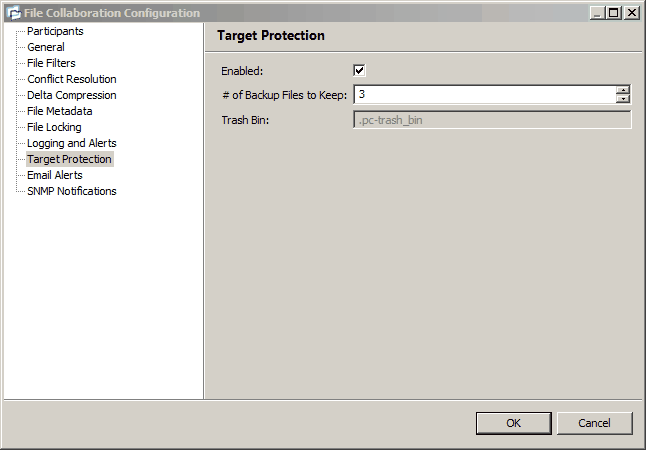Target Protection is used to protect files on target hosts by saving a backup copy before a file is either deleted or overwritten on the target host. If enabled, then whenever a file is deleted or modified on the source host, but before the changes are propagated to the targets, a copy of the existing file on the target is moved to the PeerLink trash bin.
The trash bin is located in a hidden folder named .pc-trash_bin found in the root directory of the Watch Set of the target host. A backup file is placed in the same directory hierarchy location as the source folder in the Watch Set within the recycle bin folder. If you need to restore a previous version of a file then you can copy the file from the recycle bin into the corresponding location in the Watch Set and the changes will be propagated to all other collaboration hosts.
Target Protection configuration is available by selecting Target Protection from the tree node within the File Collaboration Configuration dialog.

Below are a list of general fields and their descriptions:
Enabled |
Enables target protection. |
# of Backup Files to keep |
The maximum number of backup copies of an individual file to keep in the trash bin before purging the oldest copy. |
Trash Bin |
The trash bin folder name located in the root directory of the Watch Set. This is a hidden folder and the name cannot be changed by the end-user. |
Once all Target Protection settings are set, you can either save the configuration and exit the dialog, or you can continue with the configuration process by going to Step 9 - Email and SNMP Alerts.